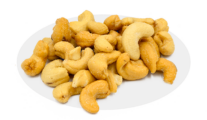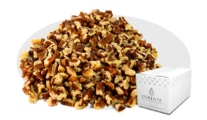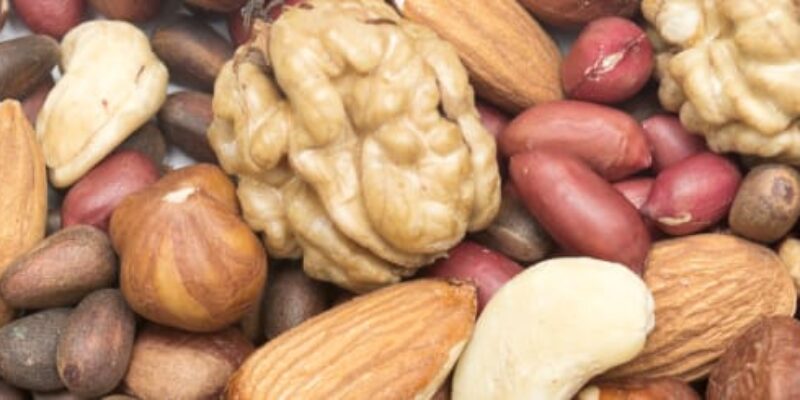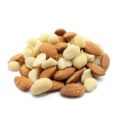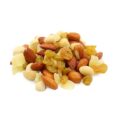Written By Sam Henselijn
Type 2 Diabetes and Tree Nuts. Are you familiar with Type 2 diabetes and how to manage it? Or, if you have type 2 diabetes, do you know if tree nuts are good to eat? If you have type 2 diabetes, what kind of tree nuts should you eat? Are you interested in learning more about the link between type 2 diabetes and tree nuts? We’ve answered all of the aforementioned questions for you. Read on to learn more about type 2 diabetes and whether or not incorporating tree nuts into your diet would be useful.
What is Type 2 diabetes?
Type 2 diabetes is a chronic illness. It prevents your body from
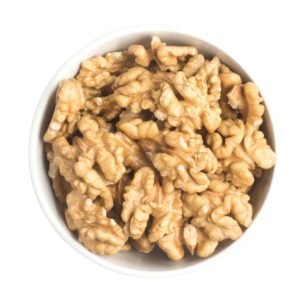
properly utilizing insulin. Insulin resistance is a term used to describe the condition of people with type 2 diabetes.
This type of diabetes is most common in people in their forties and fifties. We knew it previously as adult-onset diabetes. Due to childhood obesity, Type 2 diabetes affects children and teenagers.
Sign and Symptom of Type 2 Diabetes
Among the signs and symptoms are:
- Being extremely thirsty
- A lot of peeing
- Vision is blurry.
- Being irritable
- Numbness or tingling in your hands or feet
- Fatigue or a sense of exhaustion
- Wounds that refuse to heal
- Yeast infections that don’t go away
- Feeling peckish
- Weight loss without exerting effort
- Developing new infections
Causes of Type 2 Diabetes
- Extra weight: Overweight causes insulin resistance.
- Metabolic syndrome: Metabolism disrupts and causes high blood sugar, excess fat around the waist, high blood pressure, high cholesterol, and triglycerides.
- Glucose: When your blood sugar rises after you eat, your liver slows it down. Some people’s livers, however, do not.
- Cellular communication is poor: Cells may give out incorrect signals. Diabetes is the result of this.
- Broken Beta Cells: Your blood sugar is thrown off if the cells that generate insulin send out the wrong quantity of insulin at the wrong time.
Risks of Type 2 Diabetes
- Prediabetes
- Diseases of the heart and blood vessels
- High blood pressure can be dangerous.
- HDL (“good”) cholesterol levels are low.
- Triglyceride levels are high.
- Obesity or being overweight
- Polycystic ovarian syndrome (PCOS)
- Depression
Treatment of Type 2 Diabetes
- Loss of weight. Getting rid of excess weight can help. Weight loss can seem daunting, but starting with portion control and eating healthy foods is an excellent place to start.
- Eating well is important. Focus on
- Consuming fewer calories.
- Incorporating tree nuts into your diet
- Reducing refined carbohydrates, particularly sweets
- Increasing your fiber intake
- Keep an eye on your blood sugar levels. If you’re taking insulin, your doctor will advise you on when and how often you should test your blood sugar levels.
Type 2 diabetes and tree nuts
Eating almonds, cashews, and other nuts five times a week can

boost heart health. If you have type 2 diabetes, eating nuts five days a week may be just as important as regular exercise and blood sugar monitoring for your long-term health.
Patients with type 2 diabetes who ate five servings of nuts per week had a 17 percent lower risk of cardiovascular disease.
Furthermore, those with type 2 diabetes who ate nuts regularly had a 34% lower chance of dying from cardiovascular disease, a 20% lower risk of coronary heart disease, and a 31% lower risk of dying prematurely overall.
If you consume nuts less than five times a week, you’ll reap the benefits, but not as much as if you eat nuts almost every day.
Tree nuts, in particular, had the highest heart-healthy effects. Almonds, Brazil nuts, cashews, walnuts, macadamia nuts, pecans, pistachios, pine nuts, chestnuts, and filberts are all common tree nuts.
It’s crucial to keep in mind that peanuts are a legume, not a nut. While peanuts can be a healthy addition to a diet, they have not been shown to provide the same health benefits as tree nuts.
Why Tree Nuts for Type 2 Diabetes?
The good impacts of tree nuts on your body are:
- Blood pressure
- Your body’s ability to metabolize dietary fat
- Metabolize your blood sugar levels
- Your body’s general inflammatory levels
Reduce your risk of these health problems, and you’ll be less likely to develop metabolic syndrome. Patients who already have type 2 diabetes are at a greater risk of developing heart disease or having a stroke. Taking actions to lower your risk of metabolic syndrome also lowers your risk of developing several other illnesses.
Tree nuts have been found in studies to lower inflammation markers linked to heart disease and diabetes, as well as enhance high-density lipoproteins, which protect the heart.
So this is it! We hope you found our article on type 2 diabetes and tree nuts informative. If you have type 2 diabetes, try including tree nuts in your diet as you know that they are beneficial for your health.
Almonds, Brazil nuts, cashews, walnuts, macadamia nuts, pecans, pistachios, pine nuts, chestnuts, and filberts are all common tree nuts.
Sam Henselijn Author’s Biography – Meet L’Orenta Nuts CEO
Copyright 2024 L’Orenta Nuts
L’Orenta Nuts proudly holds the SQF food safety certification, symbolizing our unwavering dedication to upholding the highest standards of food safety and quality. This certification guarantees that our products undergo rigorous scrutiny, ensuring transparency, traceability, and adherence to global food safety regulations for the utmost consumer confidence.
L’Orenta Nuts has the HACCP (Hazard Analysis and Critical Control Points) certification is a systematic approach to identifying, evaluating, and controlling food safety hazards. It ensures that food products are produced and handled in a manner that minimizes risks and complies with safety standards.
Our GMP (Good Manufacturing Practices) certification ensures that a manufacturing facility adheres to comprehensive quality and safety standards while producing pharmaceuticals, food, and other consumer goods, promoting consistency, quality, and compliance with regulatory requirements.
L’Orenta is an FDA-approved manufacturing facility and has met the rigorous standards set by the U.S. Food and Drug Administration. It demonstrates compliance with regulations, ensuring the production of safe and high-quality food products.



